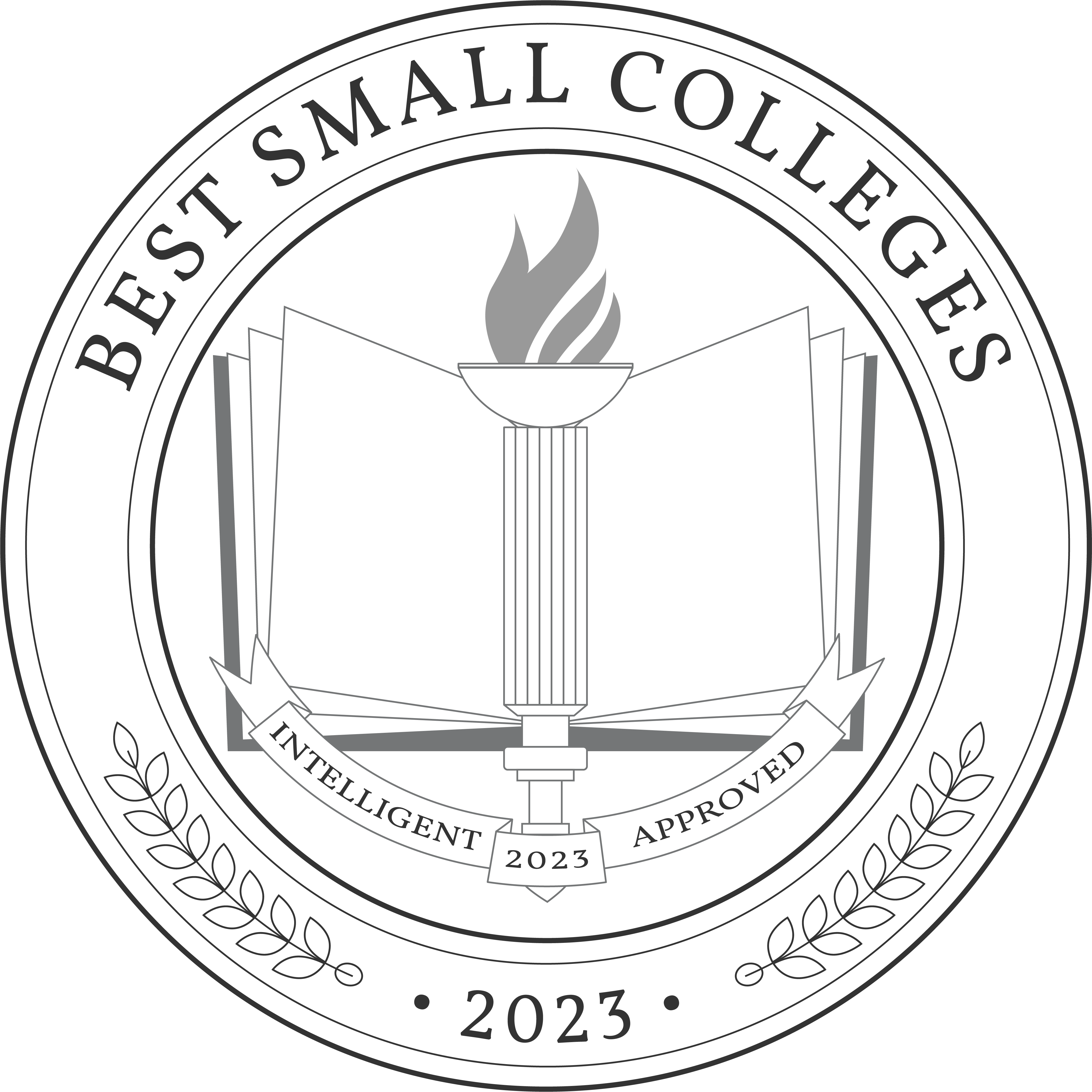Our Research
To determine the best small colleges, we looked for schools with a total enrollment of under 5,000 students, a focus on undergraduate teaching and learning, a low student to faculty ratio, and small class sizes. We also looked for schools that offer some of the resources typically associated with large research universities.
Another important factor is accreditation — we only chose schools that have been accredited by institutions such as the Higher Learning Commission, the Southern Association of Colleges and Schools Commission on Colleges, and the Middle States Commission on Higher Education. Such accreditation ensures that the program offers academic quality and that you will be able to transfer your credits between institutions.
- 23 hours to write this article
- 70 universities and colleges we assessed
- 136 education programs we compared
The Top 50 Best Small Colleges

Discover More Options
What You Should Know About Small Colleges
You’ll have small classes. If you attend a large research university, you’ll often find yourself in big lecture halls that seat hundreds of students. At a small college, the majority of your classes will probably have 20 students or less, which means you can have more meaningful and sustained interactions with your peers and professors.
Athletic opportunities might be more accessible. Many small colleges compete in small athletic conferences such as Division III. Teams usually need a set number of members regardless of the size of the school, and small colleges have a smaller pool of athletes to pull from, so you have a greater chance of making a varsity team.
Fewer students probably means a smaller social circle. One of the most exciting aspects of college is getting to befriend people from all walks of life and experiences. At a small college, the pool of potential friends may be smaller than it would be at a larger university. That said, small colleges often cultivate a close-knit, welcoming campus community.
What’s Next?
Choosing a small college is a major decision, so you should start building your list as soon as possible. Here are a few key things to consider:
- Active class participation. At a small college, you’re more than just a statistic. Your professors will probably know you by name, and you’ll be expected to actively participate in all of your classes. Whereas at a large research university classes might be taught by graduate students or professors might be preoccupied with their research, at a small college your professors put a greater focus on mentorship. They’re excited to be in the classroom, and they expect you to come to class prepared and willing to participate. Small colleges aren’t well-suited to students who want to coast by in the back of the room with their head down.
- Consider resources. Smaller colleges usually have access to fewer resources compared to large universities. A small college’s library, laboratories, and research opportunities are sometimes lesser than those at bigger universities. When building your list, be sure to think about the resources that are most central to your personal and academic goals, and try to find schools that offer those non-negotiables.
- Talk to current students. Many admissions offices are happy to put you in touch with one or more current students who can give you a better sense of what life at the college looks like on a day-to-day basis. Some colleges also allow prospective students to sit in on a class, eat at the dining hall, or even stay for an overnight visit. These are great ways to experience the community of a small college firsthand.
- Save money and apply for scholarships. Small colleges come with a big price tag. The vast majority of small colleges are private universities, meaning that they do not offer in-state tuition benefits. It’s important to sit down with your family and assess what the schools on your list cost, how much your family is able to contribute, and how much financial aid and scholarship support you will need in order to attend. The most prestigious small colleges usually commit to meeting 100% of your family’s demonstrated financial need, and others offer merit-based scholarships. See the FAFSA and CSS for more information on financial aid, and CareerOneStop’s Scholarship Finder offers more information on finding scholarships.